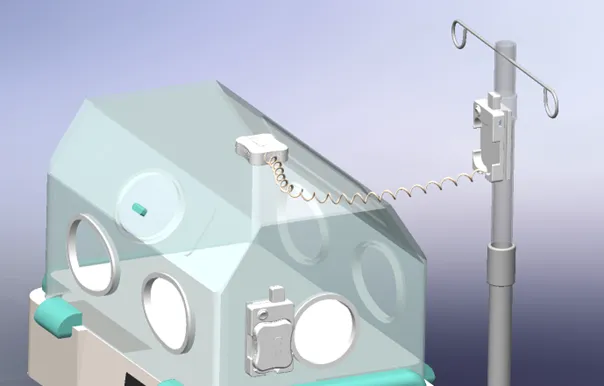
Development of an AI-supported, camera-based product family for monitoring and predicting daily activities of premature infants
Project data
Department in charge
Currently used methods rely exclusively on objective diagnostic tools for monitoring the condition of infants. However, professionals increasingly recognize the importance of individual quality of life for patients, although suitable tools for measuring this do not yet exist. For example, beyond measuring primary vital signs (heart rate, respiratory rate, blood pressure), monitoring the circadian and ultradian rhythms of premature infants in both clinical and home environments remains an unresolved challenge. Environmental factors (timing of care, lighting conditions, noise) also influence these rhythms. If these rhythms do not develop appropriately and the infant does not achieve adequate calm, stress-free rest or sleep, it can lead to long-term consequences on the later quality of life of premature infants.
Our research aims to develop algorithms capable of monitoring daily activities, care phases, and circadian rhythms of premature infants. Based on the results achieved, we plan to create reference devices, validate them, and transform them into products. In addition to improving the quality of life for newborns, such a monitoring system also streamlines the healthcare system by making daily scheduling aligned with rhythms transparent and predictable.
Our solution is suitable for real-time differentiation of behavioral phases according to the widely accepted Newborn Individualised Developmental Care Program (NIDCAP) scale, using video cameras connected to both closed and open clinical incubators. The accuracy of our technology surpasses similar methods found in the literature; however, further development is necessary for market introduction. To achieve this, we have initiated extensive data collection and Phase I and II clinical validations at the Neonatal Intensive Care Unit of Semmelweis University. Concurrently, we are developing platform-independent, embeddable libraries (APIs), prepared for compliance with relevant standards (ISO 62304, ISO 14971 – Medical device software development). The operation of the algorithms will be demonstrated with prototype devices, known as reference designs, both independently and in collaboration with Medicor Zrt., a manufacturer of incubators.
